Accounting Theory Workshop 5 - 3101AFE, Trimester 1 2020
VerifiedAdded on 2022/09/25
|5
|788
|23
Homework Assignment
AI Summary
This document presents solutions to an accounting theory assignment, addressing key concepts in international accounting. The assignment explores the impact of funding sources on reporting practices and the accounting profession, contrasting Continental European countries with the United States, the United Kingdom, Canada, and Australia. It delves into the benefits of adopting International Financial Reporting Standards (IFRS), including reduced preparation time and increased foreign direct investment, while also examining the challenges of convergence between IFRS and US GAAP, and the potential limitations of global IFRS adoption, such as manipulation risks and increased workload for accountants. The assignment applies accounting theories to the adoption of IFRS in Australia, discussing the smooth transition, cost savings, and positive impacts on foreign investment and capital markets. References from academic journals are also included to support the findings.
1 out of 5
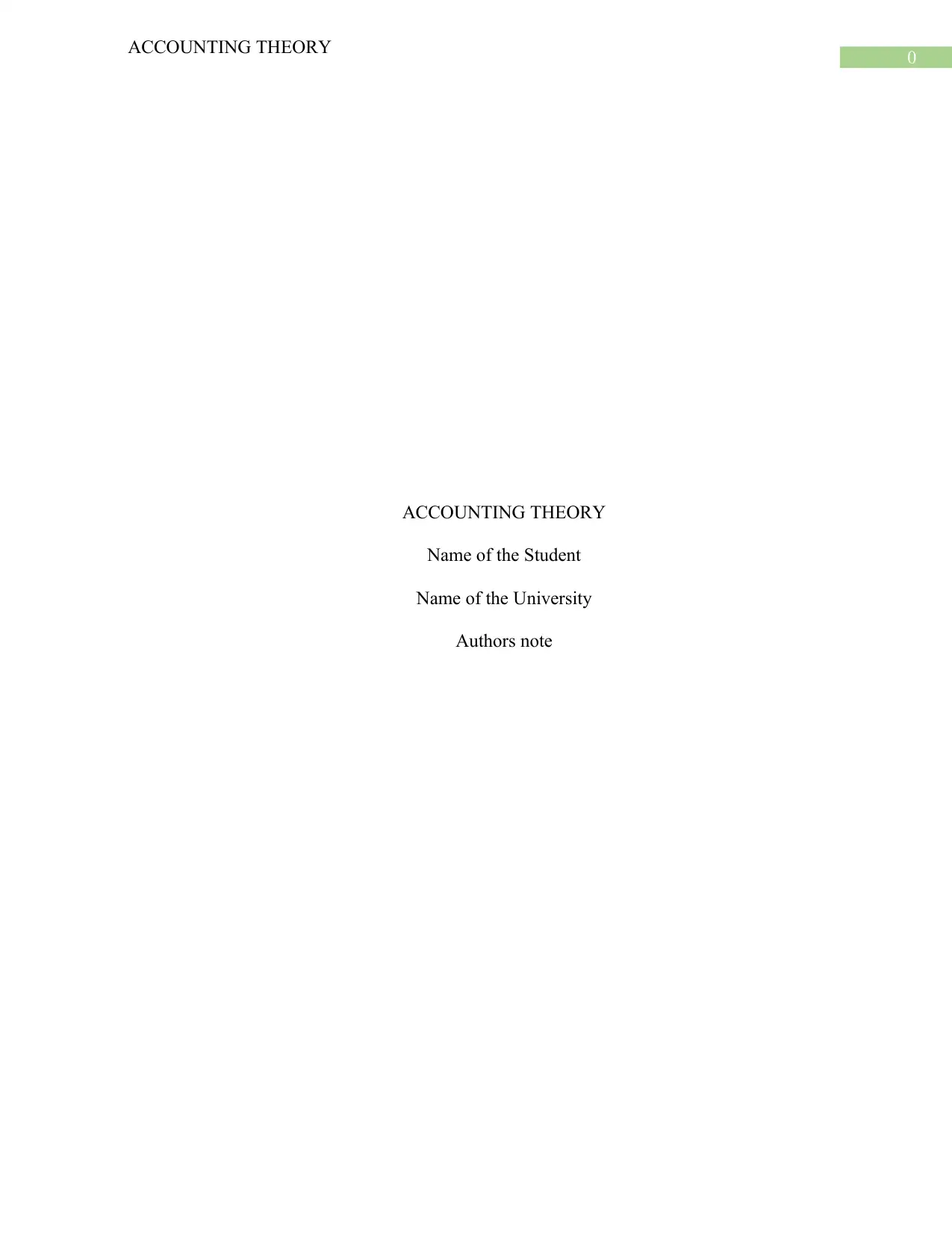
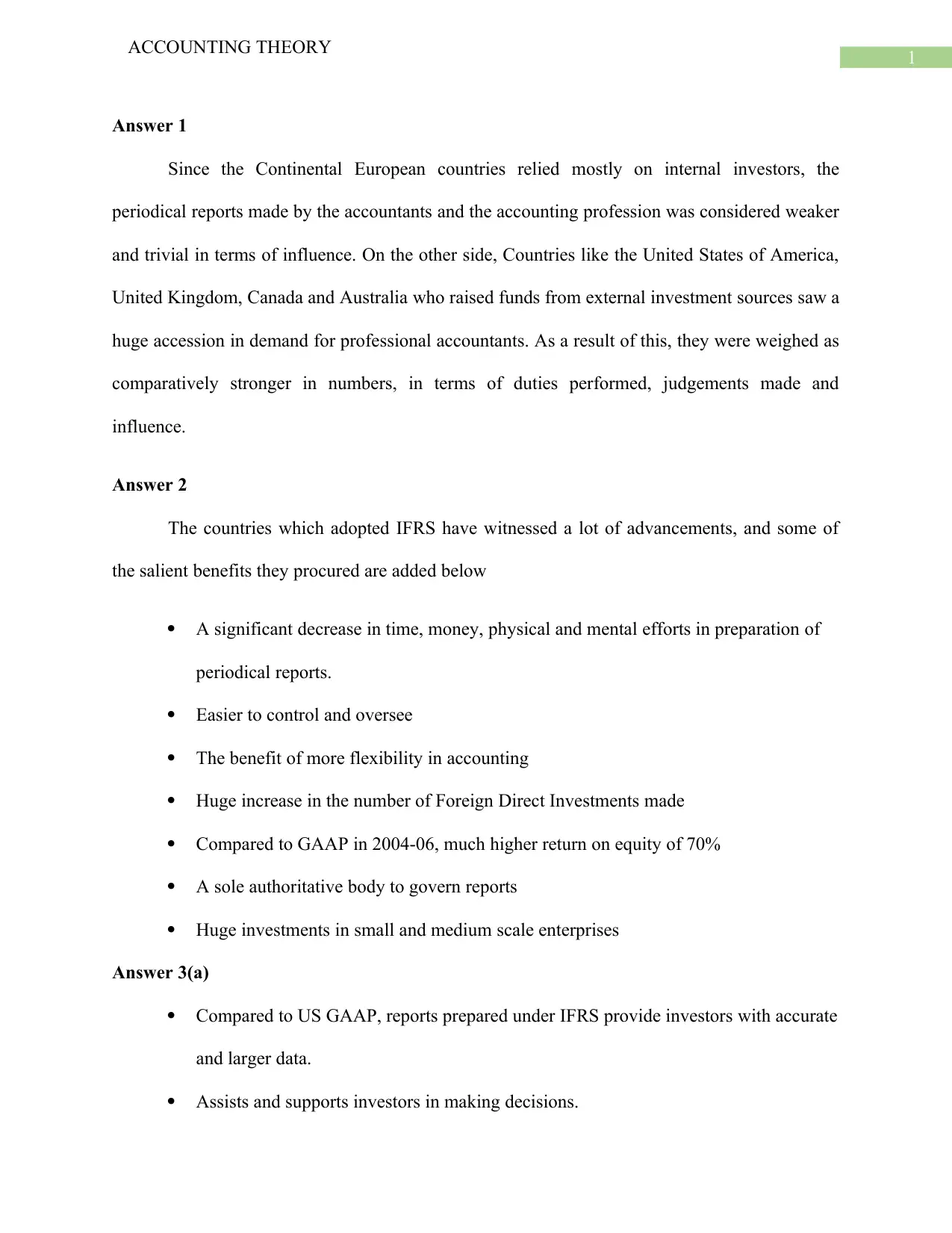
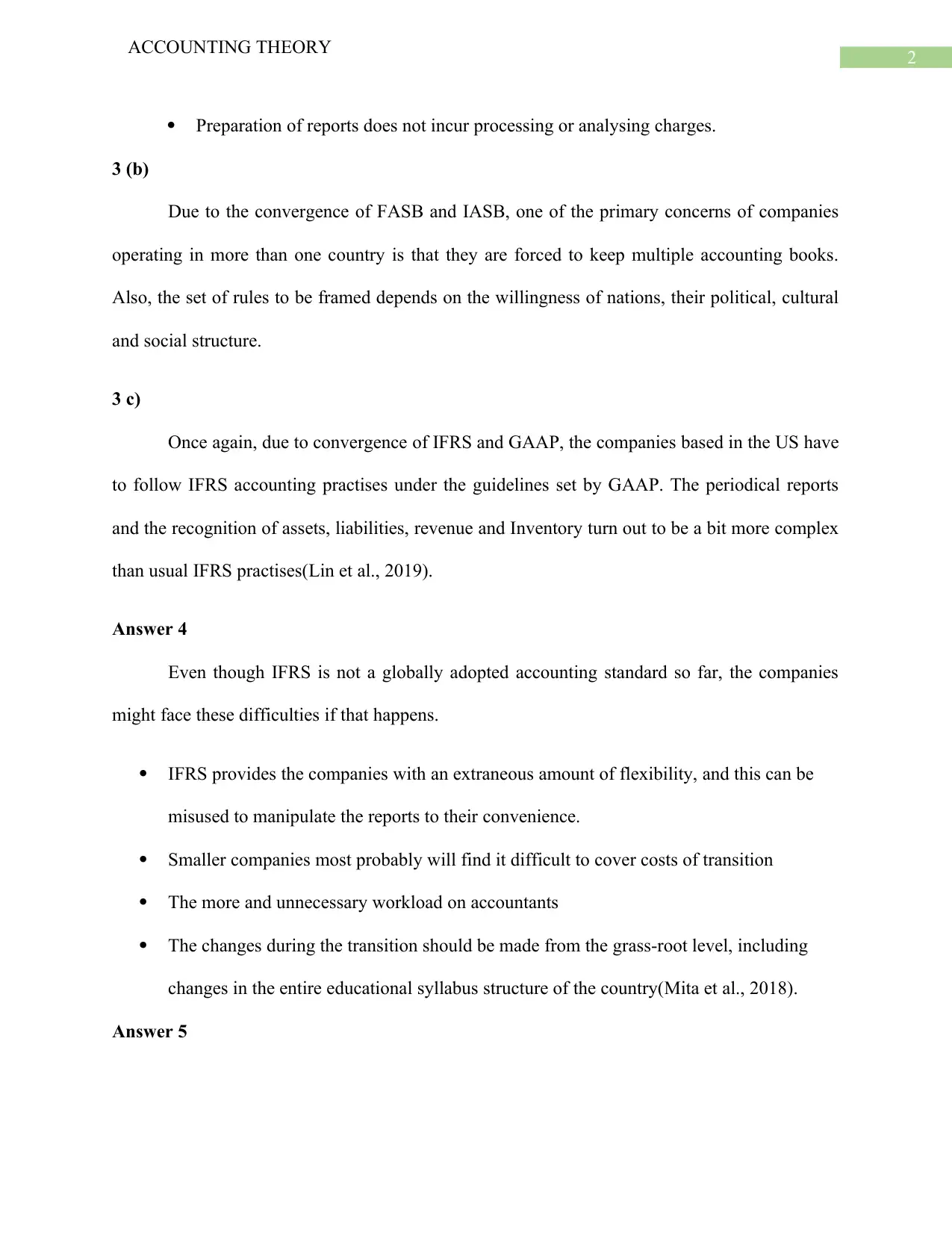

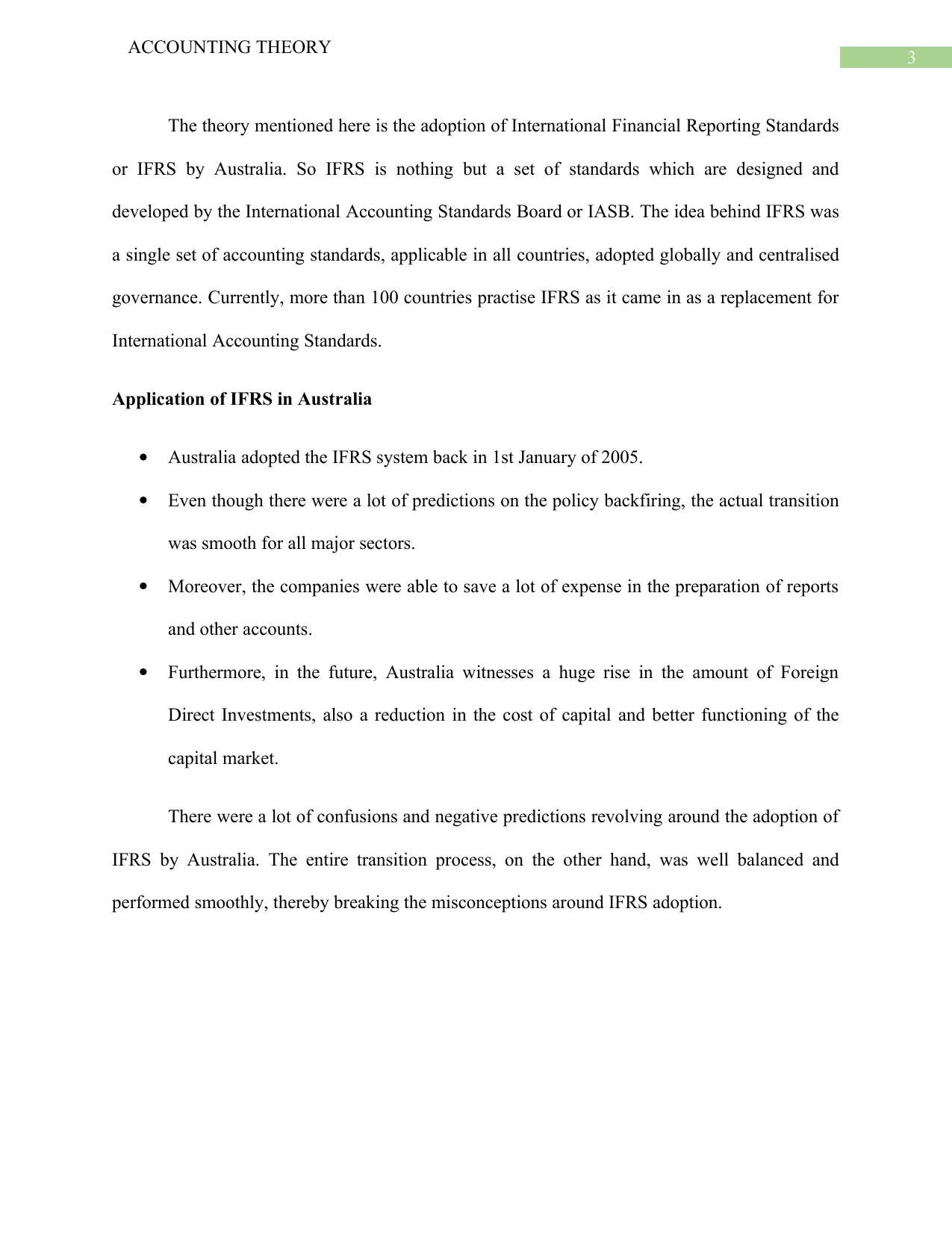
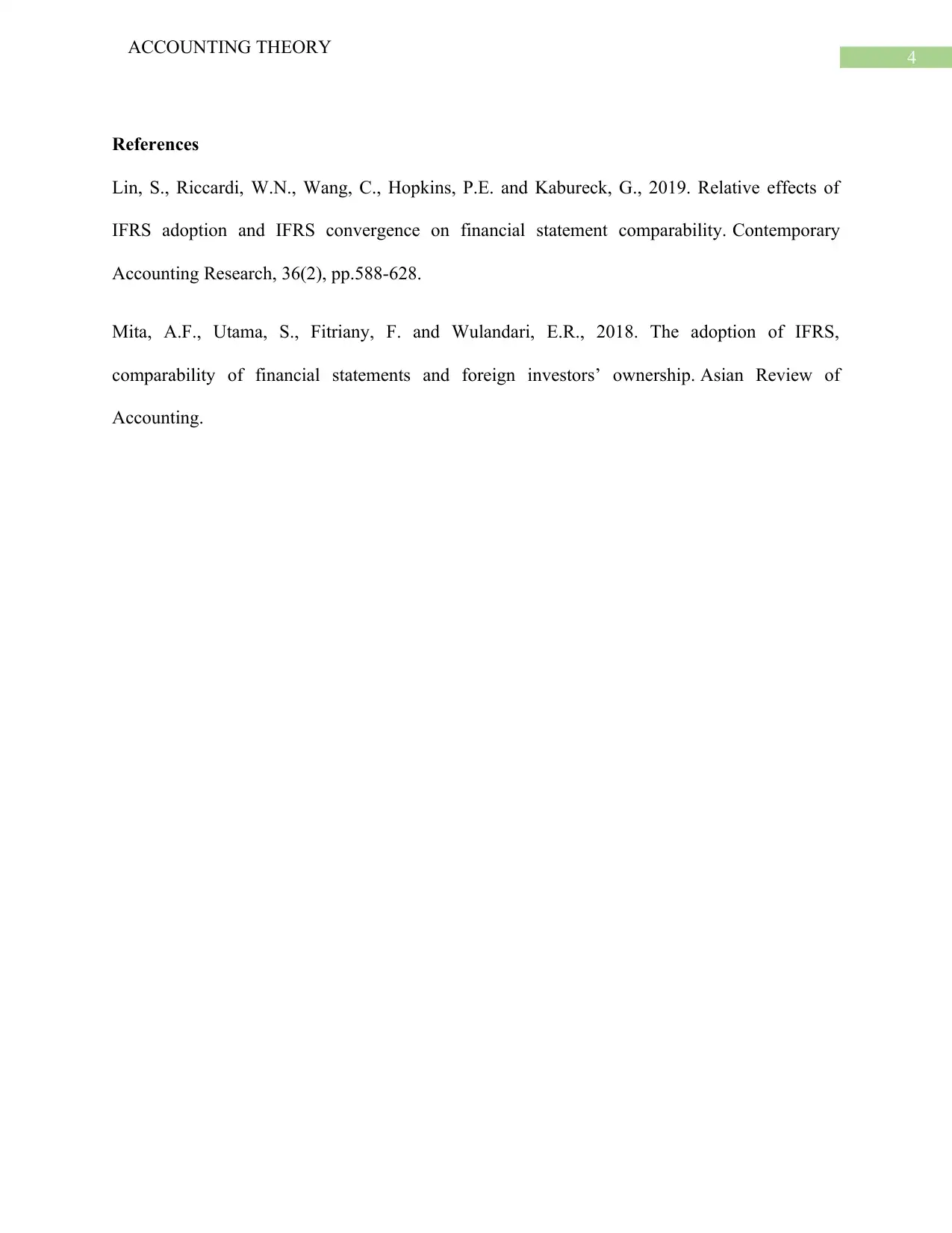






![[object Object]](/_next/static/media/star-bottom.7253800d.svg)